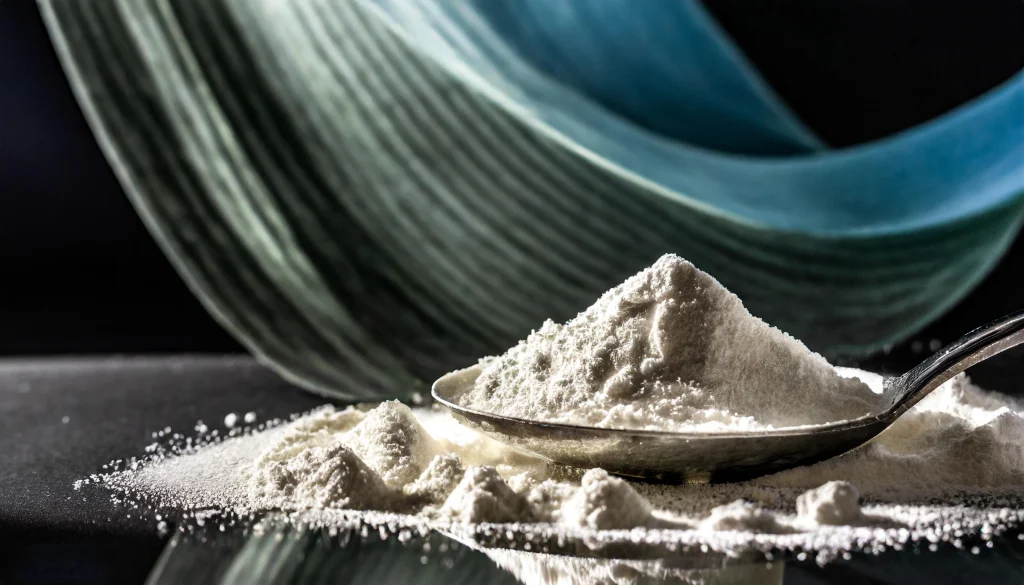Creatine is one of the most popular sports supplements available today. This naturally-occurring compound plays a crucial role in providing energy to muscles during high-intensity exercise.
Supplementing with creatine can help boost muscle mass, strength, exercise performance and recovery.
But when is the optimal time to take it – before, during or after a workout? Or does timing even matter? This article reviews the evidence on the best time of day to take creatine.

What is creatine and how does it work?
Creatine is made up of three amino acids – arginine, glycine and methionine. About half the creatine in your body is produced naturally by the liver, kidneys and pancreas.
The other half comes from foods like beef, fish and poultry.
Once inside your muscle cells, creatine binds with phosphate to form phosphocreatine. This high-energy molecule rapidly provides your muscles with energy in the form of ATP during intense exercise like weightlifting or sprints (1).
Supplementing with creatine monohydrate, the most common and effective form, can increase your muscle creatine stores by up to 40%. This extra energy reserves allows you to lift more weight, complete additional reps and sets, and recover faster between workouts.
Over time, these performance and endurance boosts stimulate greater muscle protein synthesis, leading to increased lean muscle mass and strength.
Does timing matter for taking creatine?
You may be wondering whether certain times of day are better than others for taking creatine, such as:
- Before your workout
- During your workout
- Immediately after your workout
- On non-workout days
Or does timing even make a difference? According to research, taking creatine immediately before or after a workout, as opposed to other times of day, provides no added benefit for building muscle or improving performance.
The most important factor is consistently taking creatine every day to keep muscular creatine levels elevated. Timing does not appear to influence creatine’s effectiveness.
So while taking creatine 30-60 minutes pre-workout or post-workout can be convenient, it ultimately has no bearing on results. You can take creatine whenever works best for you.
Loading phase vs daily supplementation
There are two main protocols for taking creatine:
- Loading Phase: Take 20-25 grams per day, divided into 4-5 equal doses, for 5-7 days. This rapidly saturates your muscle creatine stores
- Daily Supplementation: Take 3-5 grams per day with no loading phase. Your creatine stores will fill more gradually over 4 weeks.
Both methods are equally effective – they simply differ in how quickly they elevate muscular creatine content.
A loading phase causes a more abrupt weight gain of 0.9-2.2 kg (2-5 lbs) as your muscles fill with water. But this subsides within 1-2 weeks. It can also provoke mild GI distress.
Whereas supplementing with 3-5 grams daily avoids side effects and leads to more gradual, lean gains over a month. But some prefer quicker results from loading.
So choose the method that aligns with your preferences and tolerance. Just remember to take creatine daily either way, on both workout and rest days, to keep creatine concentrations consistently high.
Should you take creatine before or after a workout?
While research shows timing is unimportant, taking creatine pre or post workout does make sticking with it daily more convenient. Here’s the rationale behind both workout-centric approaches:
Before your workout
Taking creatine 30-60 minutes pre-workout ensures heightened phosphocreatine levels in your muscles right before training. This can translate into:
- More reps with a given weight
- Heavier weights lifted for a given number of reps
- Faster sprint times in exercises like rowing or cycling
- Greater gains in muscle size and strength over time
In essence, higher creatine reserves boost strength, stamina and workout performance.
After your workout
Post-workout (within 30-60 minutes) is prime time for replenishing muscular phosphocreatine stores. Higher creatine levels also aid protein and glycogen synthesis during this post-exercise “anabolic window”.
This one-two punch is believed to quicken recovery between workouts and build lean mass. Think faster repair, less soreness, better workouts.
Takeaways on creatine timing
While taking creatine pre or post workout can provide mild benefits, research conclusively shows timing is trivial.
The key is maintaining high muscular creatine levels through consistent daily intake.
So take 3-5 grams of creatine monohydrate at whatever time suits your schedule and lifestyle best. Just be sure to take it every day with a glass of water, whether workout days or rest days.
Over several weeks, heightened energy reserves will translate to better gym performance, increased lean muscle mass, faster post-workout recovery and reduced fatigue.
FAQ – Best time of day to take creatine
When is the best time of day to take creatine?
Research shows it's best to take creatine shortly before or after a workout on workout days. On rest days, take it with a meal, but timing is less important than on workout days. Consistency is key - take creatine daily.
Should you take creatine before or after a workout?
Taking creatine before or after workouts is equally effective. Some research suggests taking it 30-60 mins pre-workout ensures energy reserves are full.
Post-workout may aid recovery and uptake when muscles are depleted.
Should you take creatine on rest or non-workout days?
Yes, take creatine daily to keep muscular creatine levels high, whether workout or rest days. Skipping doses can reduce effectiveness.
Is it better to take creatine with protein?
Yes, taking creatine with protein powder can improve absorption and recovery. Protein provides amino acids to build muscle, while creatine boosts energy for better workouts.
Who can benefit from taking creatine supplements?
Creatine can benefit most healthy adults looking to build strength and muscle, enhance workout performance, or speed up post-workout recovery.



